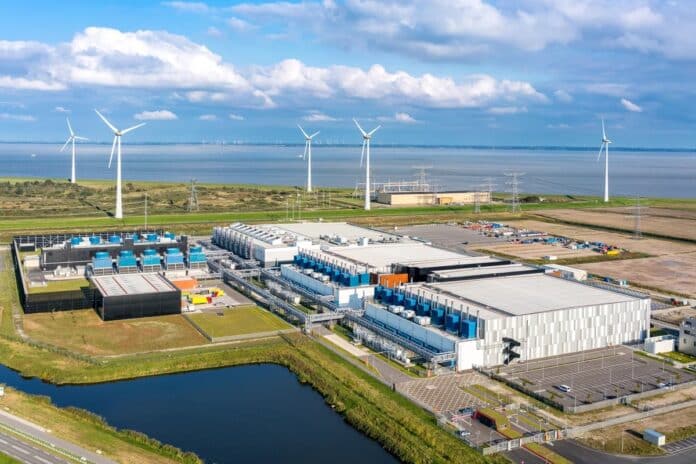Google has signed the largest power purchase agreements yet to purchase offshore wind energy for its data centers in Europe. This move is part of Google’s ambitious plan to match all of its data center electricity consumption with clean energy generation on a 24/7 basis by 2030.
To achieve this, the company is investing in renewable energy, including offshore wind, to help get more clean energy into the power grids where it operates. According to reports, Google is adding more than 700 megawatts of clean energy capacity to the grid in Europe as part of its next step toward achieving this goal.
Google is taking steps towards renewable energy solutions. The recently signed power purchase agreements are with CrossWind and Ecowende consortia, which are joint ventures between energy companies Shell and Eneco. This announcement is in line with its ambitious goal to achieve net-zero emissions across all of its operations and value chains by 2030.
The agreements are for the new offshore wind farms in the Netherlands, where Google operates two of its data centers. These wind farms are expected to supply around 6% of the Netherlands’ electricity consumption, with one already in operation and the other scheduled to start operations in 2026.
Google has been making significant progress in sourcing clean energy for its data centers. With the latest power purchase agreements, Google’s Dutch data centers are expected to achieve 90% clean energy usage this year.
Additionally, the company has signed smaller deals to purchase renewable energy from onshore wind and solar farms in Italy, Poland, and Belgium. Google’s aim is to match its electricity use with carbon-free energy purchases rather than running its data centers exclusively on renewable energy, considering that renewable energy makes up only around 40% of the Netherlands’ electricity production.
When tech companies claim to run on renewable energy, they might actually be purchasing Renewable Energy Certificates (RECs). These certificates are sold for every megawatt-hour of electricity generated by a renewable energy generator, and the revenue is intended to support the development of new clean energy projects.
However, the reduced prices of RECs have led to a dilemma where they may not generate enough revenue to encourage the development of new renewable energy projects. This could potentially defeat the purpose of using renewable energy if it doesn’t add capacity to the grid.
Google and other tech giants are making efforts to purchase carbon-free energy locally on an hourly basis rather than just annually. This move incentivizes the local power grid to generate and store more clean energy around the clock, which is a step in the right direction toward reducing carbon emissions. This move could potentially help the offshore wind industry, which has been facing rising costs, leading to the closure of some projects in Europe and the US, where Google has a significant presence.
